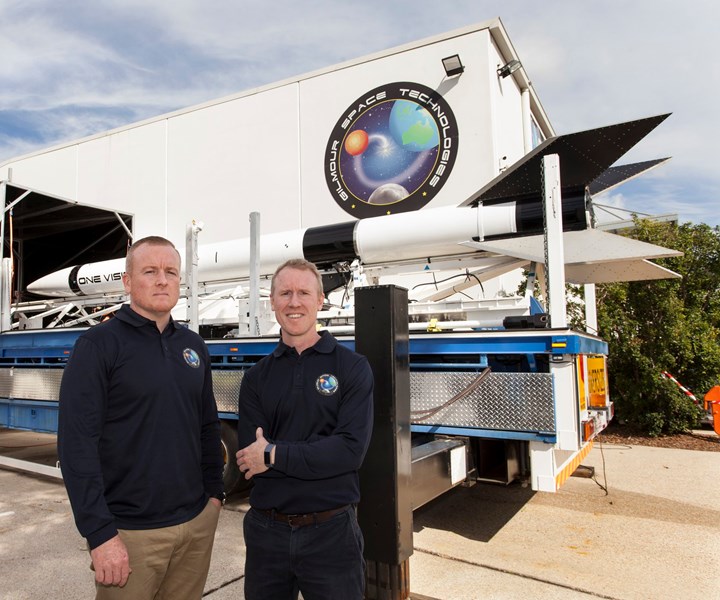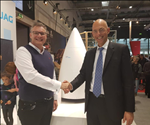Carbon fiber cryotank research receives $3 million funding boost
A consortium of industry and academic partners receives support from the Australian government for design and manufacture of lightweight rocket fuel tanks.

Source | Gilmour Space Technologies
A project aimed at developing carbon fiber rocket fuel tanks has recently been awarded a $3 million grant by the Australian government. The $12.5 million research is a collaborative project between Gilmour Space Technologies (Helensvale, Australia), the University of Southern Queensland (USQ, Toowoomba, Australia) and Teakle Composites (Acacia Ridge, Australia), with support from the federal government.
Included in the last round of the Australian government’s Cooperative Research Centres Projects (CRC-P) grants, the project is targeting the design, development and manufacture of flight-ready carbon fiber cryotanks. It brings industry and academia together to use advanced robotic filament winding with advanced materials suited to the extreme operating conditions of space.
According to the researchers, the new carbon fiber cryotanks have the potential for up to 30% weight savings and 25% cost savings compared to previous tank designs.
According to Gilmour Space CEO and founder Adam Gilmour, the goal is to launch the first commercial rocket to orbit by 2022. “We are grateful to receive this funding, which will allow us to develop world-class composite materials and components for our orbital launch vehicles, making our rockets more efficient and reducing the cost of access to space,” Gilmour says.
Gilmour Space signed a strategic agreement with USQ in 2019 to collaborate on advanced rocket technology research.
Related Content
-
Infinite Composites: Type V tanks for space, hydrogen, automotive and more
After a decade of proving its linerless, weight-saving composite tanks with NASA and more than 30 aerospace companies, this CryoSphere pioneer is scaling for growth in commercial space and sustainable transportation on Earth.
-
Co-molding SMC with braided glass fiber demonstrates truck bed potential
Prepreg co-molding compound by IDI Composites International and A&P Technology enables new geometries and levels of strength and resiliency for automotive, mobility.
-
Revisiting the OceanGate Titan disaster
A year has passed since the tragic loss of the Titan submersible that claimed the lives of five people. What lessons have been learned from the disaster?
.jpg;width=70;height=70;mode=crop)





